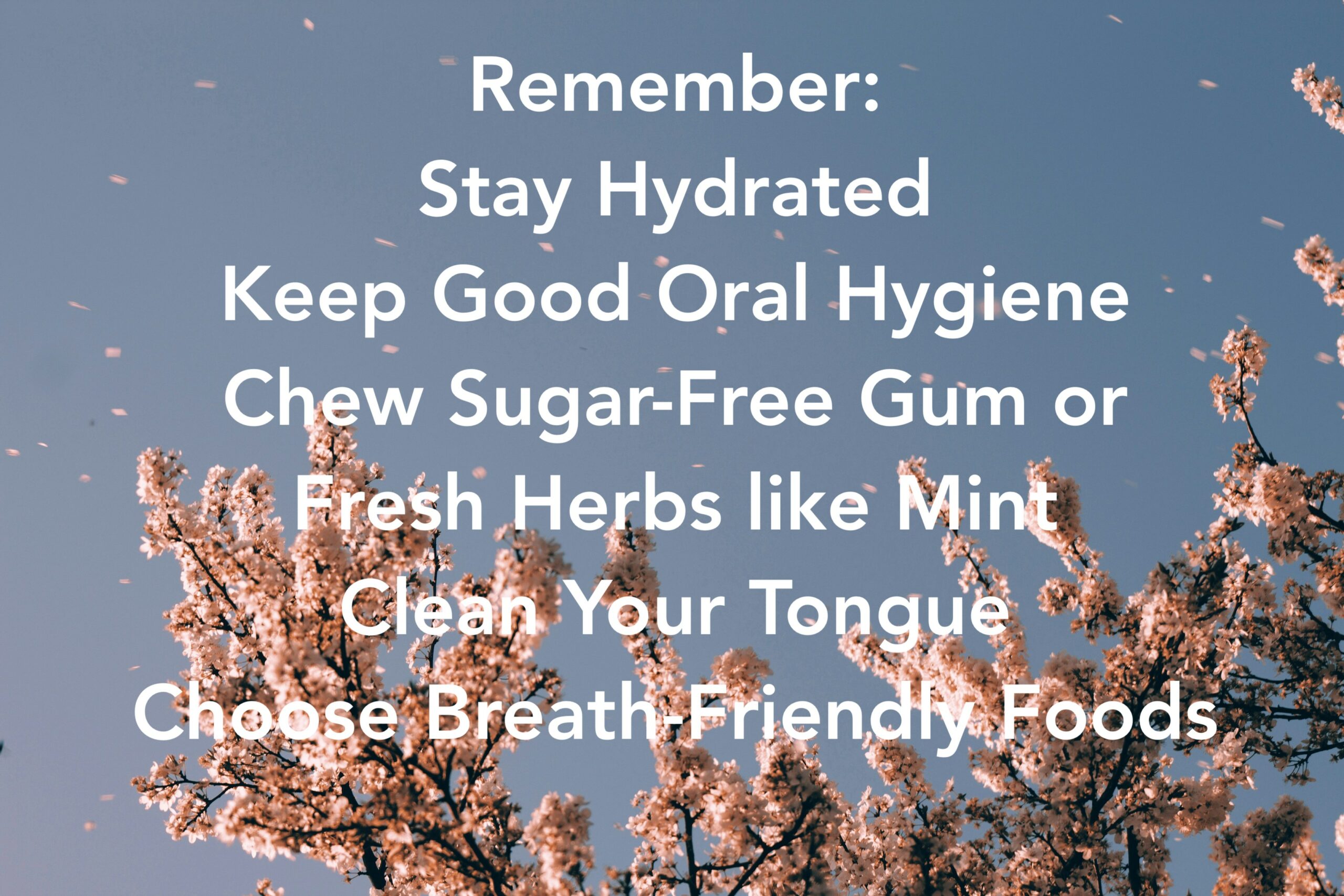Intermittent fasting offers numerous health benefits, but bad breath can be an unexpected side effect for some individuals. In this guide, we’ll explore the reasons behind bad breath during fasting and provide actionable solutions to keep your breath fresh and your fasting journey on track.
Understanding the Causes of Bad Breath During Fasting
- Dehydration: Reduced saliva production during fasting can lead to dry mouth, allowing bacteria to thrive and cause bad breath.
- Ketosis: When the body burns fat for energy, it produces ketones, which can result in a distinctive odor on the breath.
- Poor Oral Hygiene: Neglecting oral care, such as brushing and flossing, can allow bacteria to accumulate and contribute to bad breath.
- Food Choices and life style: Certain foods, such as onions, garlic, and coffee, contain compounds that can linger in the mouth and cause unpleasant breath. As well as smoking will generate the same result.
Tips for Maintaining Fresh Breath During Fasting
- Stay Hydrated: Drink plenty of water throughout the day to keep your mouth moist and prevent dehydration-related bad breath.
- Practice Good Oral Hygiene: Brush your teeth, tongue, and gums regularly to remove plaque and bacteria. Consider using an alcohol-free mouthwash or a water floss device daily for added freshness.
- Chew Sugar-Free Gum: Sugar-free gum can stimulate saliva production and help freshen breath between meals. Look for gum with xylitol, which has antimicrobial properties.
- Clean Your Tongue: Use a tongue scraper or toothbrush to gently clean your tongue and remove bacteria that can cause bad breath.
- Choose Breath-Friendly Foods: Opt for fresh fruits and vegetables, lean proteins, and whole grains to minimize the risk of breath odor. Avoid highly processed or strongly flavored foods.
- Monitor Ketone Levels: If you’re following a ketogenic fasting approach, monitor your ketone levels and adjust your diet as needed to minimize breath odor.
- Use Natural Remedies: Fresh herbs like parsley and mint can help neutralize odors in the mouth. Chewing on a piece of lemon or orange peel can also provide a temporary burst of freshness.
- Seek Professional Advice: If bad breath persists despite your efforts, consult a dentist or healthcare provider to rule out any underlying oral health issues.
To Sum Up!





